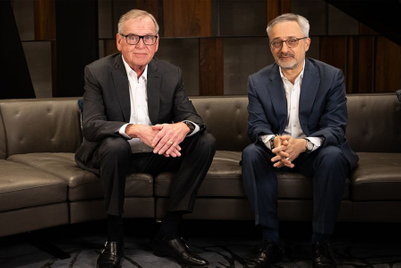
Omnicom and Interpublic Group (IPG) recently announced a historic merger, creating a powerhouse that now commands 15.5% of the global advertising market, surpassing rivals WPP (14.8%) and Publicis Groupe (11.5%). This consolidation, uniting the third- and sixth-largest global agency networks, marks a seismic shift in the advertising industry, with profound global and regional implications—particularly in mainland China, where the merger signals a potential shake-up of long-standing market dynamics.
The merger reflects the growing trend of agency consolidation aimed at achieving operational efficiency and expanding client service offerings. According to COMvergence’s 2023 data, Omnicom Media Group (OMG) and IPG had pre-merger global market shares of 9.6% and 5.9%, respectively. The combined Omnicom-IPG entity now surpasses its competitors, solidifying its position as the world’s largest advertising group.

In mainland China, Omnicom Group’s 2023 media billings of RMB 16.84 billion ($2.3 billion) accounted for a 3.4% market share, placing it third behind Publicis Media and Guangdong Advertising Corp. IPG’s RMB 2.76 billion ($380 million) added a modest 0.6% share. Post-merger, their combined media billings now reach RMB 19.6 billion ($2.7 billion), narrowing the gap with Publicis Media to 2.6 percentage points and extending its lead over Guangdong Advertising Corp to 0.6 percentage points.
Ebiquity’s analysis points to significant opportunities but also challenges for Omnicom in China’s complex market. While the merger strengthens Omnicom’s foothold, it still trails Publicis Media and faces intense competition from both global and local players, including digital platforms.

According to the COMvergence New Business Barometer for the first three quarters of 2024, Publicis Groupe retained its leadership in net new business gains, securing RMB 6.73 billion ($930 million) despite losing Shanghai General Motors after a 20-year relationship. Omnicom Media Group ranked second, with a net gain of RMB 1.356 billion ($190 million), driven by wins such as Universal Beijing Resort and China UnionPay. However, IPG’s Mediabrands saw net losses of RMB 665 million ($91 million), reflecting challenges in client retention, including the departure of Lego and Universal Beijing Resort before the merger.
It's also worth noting that the combined Omnicom-IPG entity reported a net gain of RMB 691 million ($96 million) post-merger, maintaining its second-place position in mainland China. Meanwhile, rivals WPP’s GroupM and Dentsu Media experienced steep losses, with GroupM losing RMB 3.936 billion ($545 million) and Dentsu Media recording a net loss of RMB 2.165 billion ($300 million).

Looking ahead, Ebiquity predicts a further narrowing of the media billing gap between GroupM and Publicis. In 2023, the gap was 39% (RMB 21 billion or $2.9 billion); by 2024, it is expected to shrink to 21% (RMB 10.3 billion or $1.4 billion). Such shifts could disrupt the competitive landscape in China, where local agencies and digital platforms increasingly challenge global players.

The merger has reshaped global rankings, but its impact on advertisers is far from straightforward. While consolidation promises streamlined services, it also raises concerns about conflicts of interest. Advertisers should closely evaluate how competing brands are managed, consider specialised services from local agencies, negotiate media pricing to optimise costs, and explore innovative media strategies to maintain marketing effectiveness.


.jpg&h=334&w=500&q=100&v=20250320&c=1)

.jpg&h=334&w=500&q=100&v=20250320&c=1)


.jpeg&h=334&w=500&q=100&v=20250320&c=1)
+(1).jpg&h=334&w=500&q=100&v=20250320&c=1)

.jpg&h=334&w=500&q=100&v=20250320&c=1)
.jpg&h=334&w=500&q=100&v=20250320&c=1)

.jpg&h=268&w=401&q=100&v=20250320&c=1)

.jpg&h=268&w=401&q=100&v=20250320&c=1)



